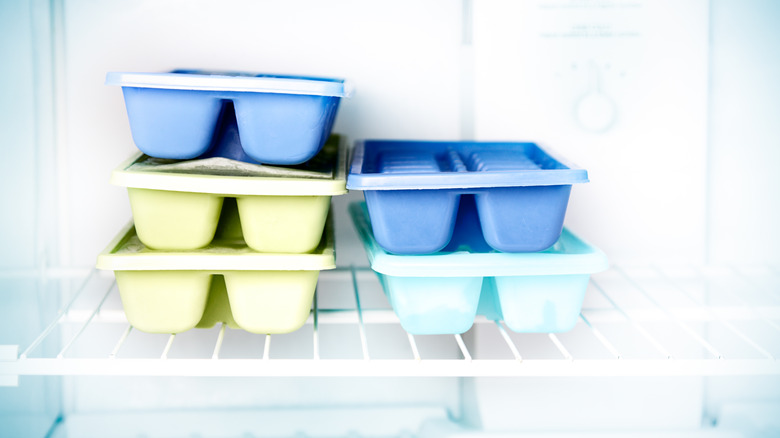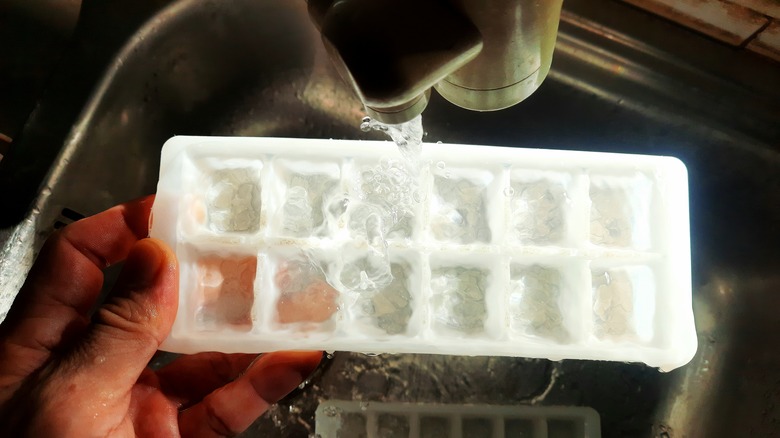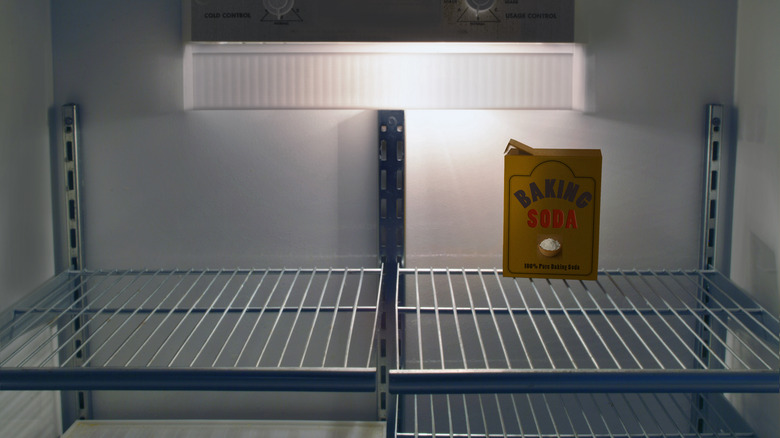The Freezer Tip For Preventing Ice From Smelling And Tasting Bad
The presence of smelly ice in a freshly made beverage can be a real deal-breaker. Whether it's a subtle hint of freezer burn or an overpowering odor tied to last night's leftovers, stinky ice can pretty quickly disrupt the balance of a cocktail or tarnish the purity of a glass of water with its stench and bad taste. The most common culprit of foul-smelling ice is improperly sealed food, which can emit gases that seep into the ice and transform the smell and taste.
The food in question doesn't have to be in the freezer either. That old lo mein sitting in the back of the refrigerator can just as quickly affect the taste of your ice thanks to the appliance's single evaporator. According to Consumer Reports, most fridges rely on a single evaporator to push air between the fresh food and freezer compartments, meaning that smells from the fridge can very easily infiltrate the freezer. The outlet's staffers even ran an experiment in which they filled the fresh-food compartment of the fridge with garlic and made a batch of ice. Sure enough, the cubes smelled and tasted garlicky.
To prevent contaminating your ice, be sure to regularly discard old food or leftovers, and store everything in airtight containers. Alternatively, you can also store your ice in a sealed container.
Other stinky ice suspects
Although unsealed food is often to blame, it's important to sniff out the root cause of your malodorous misfortune. It could be that the water used to make the ice is responsible for the funky smell or taste. Tap water can contain minerals, contaminants, or even chemical additives like chlorine that can stink it up. Run a quick taste test from the tap, and contact your water provider if the flavor is off.
If your water tastes fine, the offender might be a dirty ice maker filter in your freezer. Many manufacturers recommend a filter replacement every six months to maintain the freshness of your ice, although that can depend on how often you use it and the water quality in your home. Consult your appliance's user manual for specific instructions to address this issue effectively. For those without automatic ice makers, the ice cube tray or bucket itself could be to blame. Either replace or clean the containers by soaking them in vinegar overnight.
Stemming the stench
Okay, so you've tossed old leftovers, sealed up any remaining food, ruled out your water source, replaced your ice trays, and cleaned your ice maker filter, now what? A final step to preventing yucky ice is to use a deodorizer for a better smelling fridge and freezer.
Baking soda is probably the one that first comes to mind, but there's actually a better option that's backed by science: activated charcoal. Although baking soda is somewhat effective as an odor eliminator, it's limited by its mechanism of action. It alters the structure of acidic molecules, meaning it doesn't entirely neutralize the smell — it just changes it. And it may not work on all odors, as some are neutral or alkaline.
Meanwhile, activated charcoal is made of pure carbon and can absorb a variety of molecules, acidic and alkaline alike. Its highly porous surface works to trap smells, making it a promising choice for effective odor removal. Cooks Illustrated recommends placing two cups of activated charcoal in the back of your fridge in an open container so the air vent can distribute it to both the fridge and freezer.


